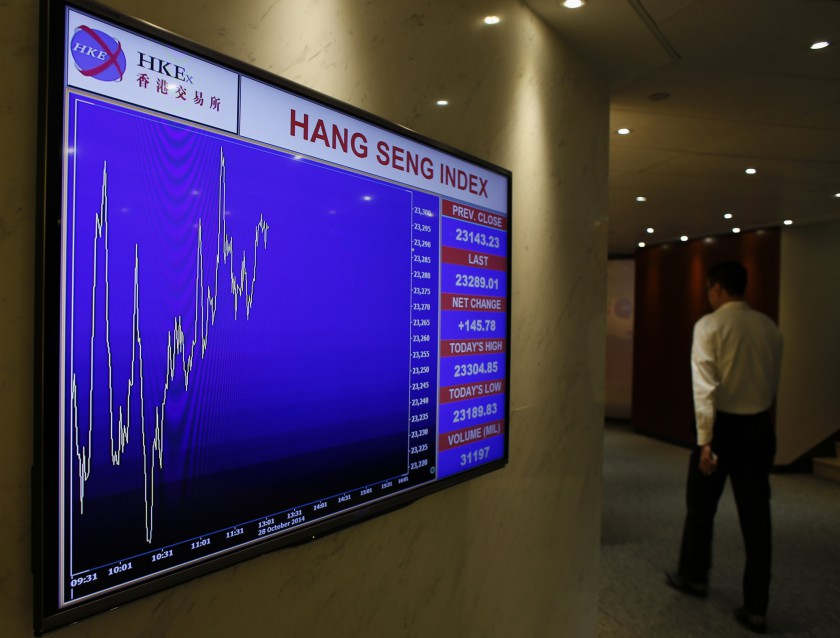HONG KONG, Dec 11 — Hong Kong’s government is trying to maintain the territory’s momentum toward becoming an Islamic finance centre, as other potential sukuk issuers show little enthusiasm.
In September, Hong Kong made the first US dollar-denominated sukuk issue by an AAA-rated government, a US$1 billion (RM3.47 billion) deal that put it on the map in the global competition among banking centres to attract Islamic finance business.
Since then, however, there have been few if any signs of other sukuk issuers emerging in Hong Kong — demonstrating that however hard governments try, they may struggle to develop Islamic finance sectors if a strong economic rationale is absent.
Hong Kong is a top centre for conventional finance, serving China and many customers elsewhere in Asia. Because of its fiscal strength, its sovereign sukuk issue attracted a massive order book of US$4.7 billion, including many investors from the Middle East.
But that does not necessarily mean other borrowers in Hong Kong will choose to issue sukuk instead of conventional bonds, which tend to be more familiar and less complex, and therefore cheaper to structure and sell.
And for regional borrowers which do want to use sukuk, it is not immediately clear why they should choose Hong Kong instead of Kuala Lumpur, which has the world’s most active Islamic bond market, or the Gulf, where most big Islamic investors are based.
In the past, several firms in Hong Kong have been linked to possible sukuk issuance, including the Airport Authority, metro operator MTR Corp and Hong Kong Mortgage Corp (HKMC). So far, there is no sign of these firms following the government’s lead, however.
The Airport Authority said through a spokesperson that it had no further updates on its funding plans or the subject of sukuk financing. MTR Corp declined an interview request, saying it had no funding plans.
HKMC considered sukuk when the government first started to promote the sector, but a preliminary study found it difficult to proceed since HKMC’s assets are not shariah-compliant mortgages, said treasury manager Rita Yeh.
“Nevertheless, we will continue to monitor the market development and be open-minded on any favourable funding options for the Corporation.”
Paving the way
In a written response to Reuters questions, the Hong Kong Monetary Authority (HKMA) said September’s sukuk sale had demonstrated that the territory’s legal, regulatory and taxation framework could support domestic issuers, paving the way for public and private sector firms to come to market.
In July 2013, Hong Kong amended its tax laws to provide a level playing field for some of the most common types of sukuk transactions — ijara, musharaka, mudaraba and wakala — and lawmakers passed a bill in March this year to allow the government to issue its own sukuk.
“Whether more government sukuk will be launched in the future will very much depend on the additional benefits of such future issuances from a market development perspective. We will continue to keep this under review,” the HKMA said.
For years, proponents of Islamic finance in Hong Kong have dreamed of making the territory a bridge to Chinese buyers of sukuk.
So far, however, there have been few issuers of yuan-denominated sukuk, and these have opted to tap the Malaysian market instead, via locally domiciled special purpose vehicles.
They include Malaysia’s state investor Khazanah Nasional , which made a three-year, 500 million yuan (RM282.48 million) sukuk issue in 2011, and mobile phone operator Axiata Group, which conducted a two-year, 1 billion yuan issue in 2012.
To help Hong Kong win such business, the HKMA is working to increase awareness of Islamic finance within the territory. Last December it launched a forum on Islamic finance with Malaysia’s central bank, and it has organised seminars and workshops.
“We will also share our experience in sukuk issuance with enterprises which have funding needs, with a view to encouraging them to participate in the local market,” the HKMA said.
Meanwhile, Hong Kong’s Financial Secretary John Tsang led a business delegation to the Middle East this week, with visits to Saudi Arabia and the United Arab Emirates.
“We welcome more sukuk to be marketed, listed and executed in Hong Kong. And we invite more Islamic financial institutions to establish a presence in Hong Kong,” Tsang said in a speech to an audience in Riyadh on Sunday.
Islamic fund management has been one bright spot for Hong Kong this year. Maybank Asset Management, a unit of Malayan Banking, said in October it would tie up with Hong Kong-based Bosera International to jointly develop Islamic investment products.
Malaysia’s RHB Asset Management launched its first Islamic fund in the Hong Kong market in June, with plans for two more such funds next year. — Reuters






















